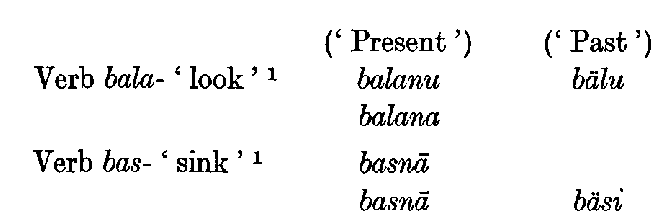Articles
Petitions from the Ayyūbid period
-
- Published online by Cambridge University Press:
- 24 December 2009, pp. 1-32
-
- Article
- Export citation
Zoroastrian Astrology in the Bundahišn
-
- Published online by Cambridge University Press:
- 24 December 2009, pp. 511-529
-
- Article
- Export citation
Obituary
Arnold Adriaan Bake
-
- Published online by Cambridge University Press:
- 24 December 2009, pp. 245-261
-
- Article
-
- You have access
- Export citation
Articles
Some Irrigation Systems in ḥaḍramawt
-
- Published online by Cambridge University Press:
- 24 December 2009, pp. 33-76
-
- Article
- Export citation
Obituary
Arnold Adriaan Bake–Bibliography1
-
- Published online by Cambridge University Press:
- 24 December 2009, pp. 262-264
-
- Article
-
- You have access
- Export citation
Articles
Rules of A Chinese secret society in British Columbia
-
- Published online by Cambridge University Press:
- 24 December 2009, pp. 530-539
-
- Article
- Export citation
The ‘Song of Bagauda’: a Hausa king list and homily in verse–I
-
- Published online by Cambridge University Press:
- 24 December 2009, pp. 540-567
-
- Article
- Export citation
The inscriptions at Shīmbār1
-
- Published online by Cambridge University Press:
- 24 December 2009, pp. 265-290
-
- Article
- Export citation
Research Article
Further Studies on the Dōsiri Dialect of Arabic as spoken in Kuwait
-
- Published online by Cambridge University Press:
- 24 December 2009, pp. 77-113
-
- Article
- Export citation
Articles
A New Source For the Biography of Aḥmad Bābā Al-Tinbuktī (1556–1627)
-
- Published online by Cambridge University Press:
- 24 December 2009, pp. 568-593
-
- Article
- Export citation
Some Notes on the Provincial Administration of the Early Ṣafawid Empire
-
- Published online by Cambridge University Press:
- 24 December 2009, pp. 114-128
-
- Article
- Export citation
A Maqāma on Secretaryship: Al-Qalqashandī's Al-Kawākib Al-Durriyya Fī'l-Manāqib Al-Badriyya
-
- Published online by Cambridge University Press:
- 24 December 2009, pp. 291-298
-
- Article
- Export citation
Participial Forms In Early Sinhalese Prose
-
- Published online by Cambridge University Press:
- 24 December 2009, pp. 129-150
-
- Article
- Export citation
Research Article
Some nautical terms in the Kuwaiti dialect of Arabic
-
- Published online by Cambridge University Press:
- 24 December 2009, pp. 299-332
-
- Article
- Export citation
Articles
Systems of Tone-Marking African Languages1
-
- Published online by Cambridge University Press:
- 24 December 2009, pp. 594-611
-
- Article
- Export citation
Notes and Communications
On the Chronology of Movsēs Dasxurançi
-
- Published online by Cambridge University Press:
- 24 December 2009, pp. 151-153
-
- Article
- Export citation
A Georgian Embroidery Panel in Hull
-
- Published online by Cambridge University Press:
- 24 December 2009, pp. 612-619
-
- Article
- Export citation
Articles
The Revolutions of 1841–2 in Afghanistan
-
- Published online by Cambridge University Press:
- 24 December 2009, pp. 333-381
-
- Article
- Export citation
‘Nobkissen Versus Hastings’
-
- Published online by Cambridge University Press:
- 24 December 2009, pp. 382-396
-
- Article
- Export citation
Notes and Communications
A Postscript to Professor Sinor's ‘Observations on a New Comparative Altaic Phonology’
-
- Published online by Cambridge University Press:
- 24 December 2009, pp. 154-156
-
- Article
- Export citation

